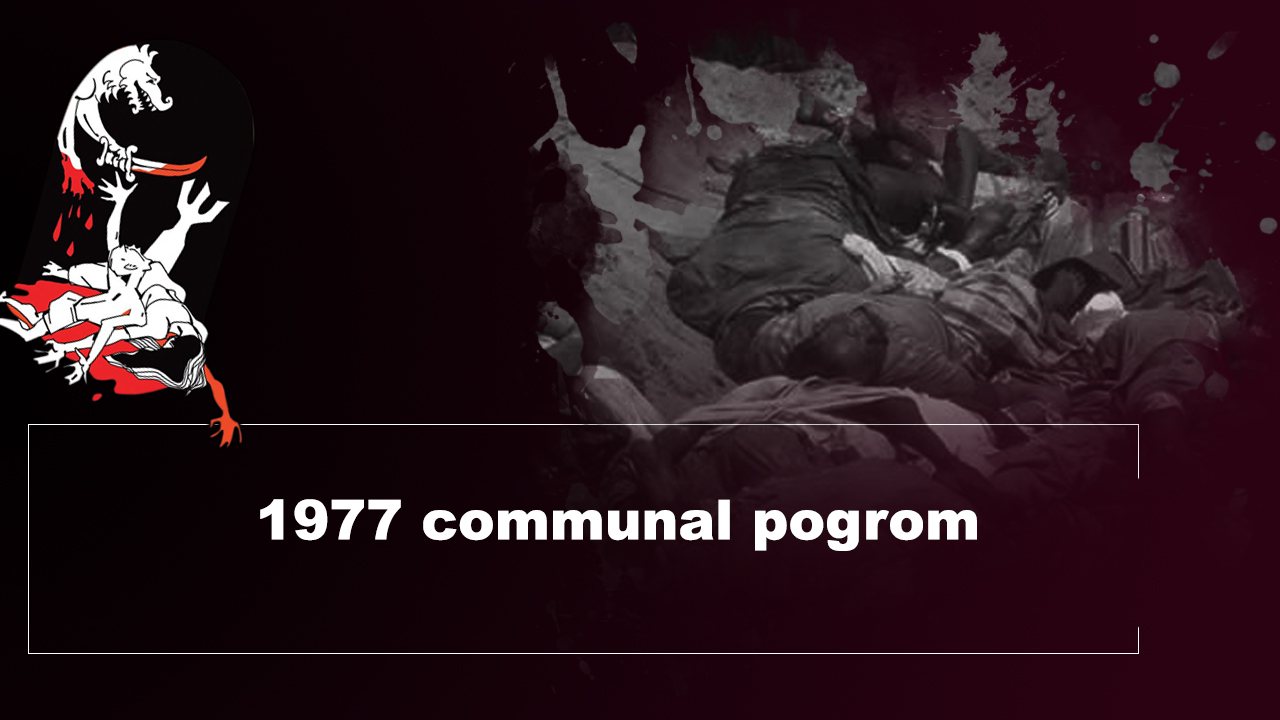In the July 1977 parliamentary elections the United National Party received a landslide victory capturing 5/6 of the parliamentary seats amounting to 140 seats. The party that was in government, the SLFP, received only 8 seats. Tamil Alliance group campaigning on an election platform of working towards an independent Tamil Eelam state won 18 seats by receiving the vast majority of the Tamil votes. This was not well received by the Sinhala polity.
In was in this context that the Sri Lankan police in Jaffna was pulled up by the public for sexual harassment of school girls at a school exhibition. Armed police later arrived at the scene in large numbers and began threatening people.
Following this, the Jaffna-Colombo and the Colombo-Jaffna night mail trains were attacked when it stopped at the Anuradhapuram railway station. Following these attacks, violence against Tamils spread throughout the island. Tamils in Trincomalee, Vavuniya, Ratmalana, Badhulla and Colombo were badly affected. Tamil Alliance members of parliament raised the violence in parliament. Yet, the then Presidential in Colombo J R Jayawardhana did not even declare curfew or emergency. He said that he does not like to rule the country under an Emergency Regulation.
The Sansoni Commission investigated the 1977 communal violence and submitted its report in 1980. The Sansoni commission reported that the police acted irresponsibly during the violence. Sansoni report said that more than 300 civilians were killed during this pogrom. However, statistics collected by other nongovernmental organizations put the number killed at more than 1500. These reports also said that many were injured with knife, iron bars, and logs. The report recommended compensation to the victims. It said, “Incidents which occurred during the specified period were of such an extreme nature and so widespread that an exception should be made as regards the payment of compensation”. The committee appointed by the government on this recommendation to assess the compensation never sat.
